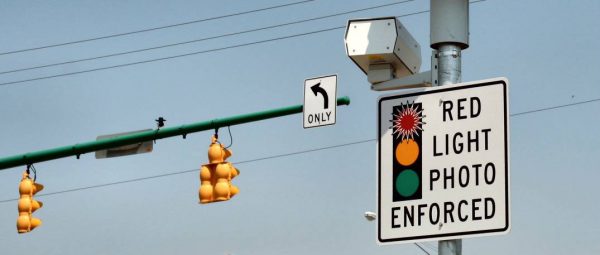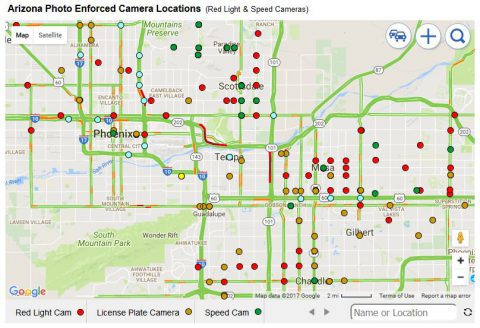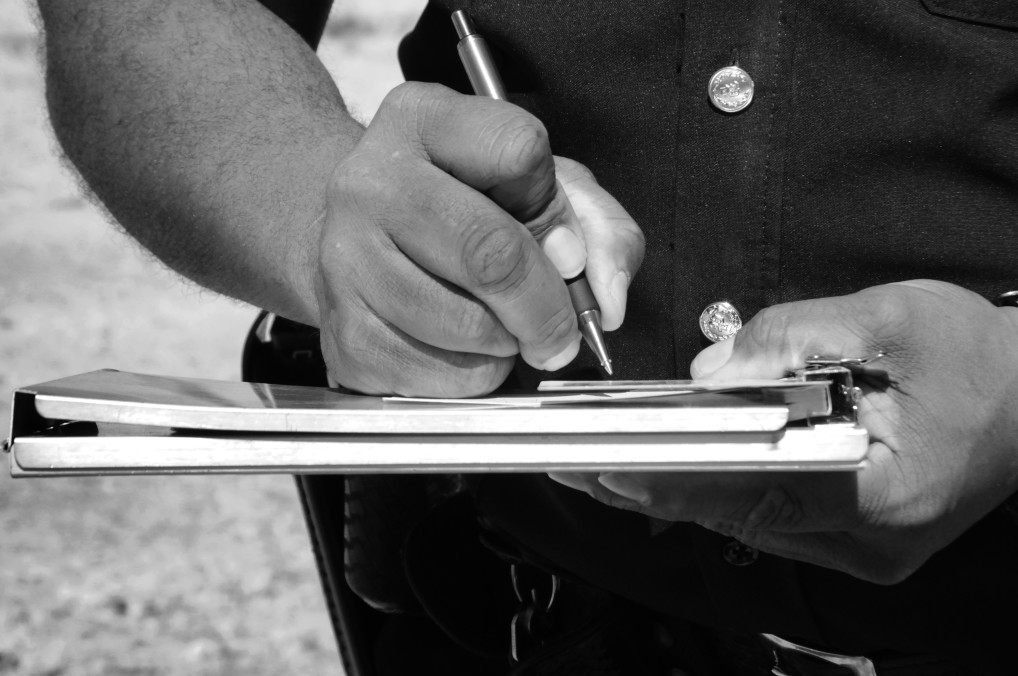We’re here for you during these uncertain times. Our support team is always available - contact us anytime, 24/7!
Where to Look for Traffic Cameras in AZ
 No one wants to get caught breaking a traffic law and while the best practice is to always stick to the rules, it is
good to know where to slow down and take extra precaution in Arizona. The key to making sure that you do not get a
speeding ticket is knowing the speed limit when you are driving and paying attention to the road signs that indicate
this. However, it is also helpful to know where speeding cameras, as well as red light and right turn cameras, are
placed.
[framed_box]
No one wants to get caught breaking a traffic law and while the best practice is to always stick to the rules, it is
good to know where to slow down and take extra precaution in Arizona. The key to making sure that you do not get a
speeding ticket is knowing the speed limit when you are driving and paying attention to the road signs that indicate
this. However, it is also helpful to know where speeding cameras, as well as red light and right turn cameras, are
placed.
[framed_box]
How You Can Get a Ticket in AZ
 Not only can you get a ticket from the police officers that are monitoring the road, but you can also get one from the
cameras that are set up in various areas in Arizona. There are traffic cameras set up to not only monitor speeding but
also take a picture of a vehicle that runs a red light, doesn't stop fully at stop signs, and other traffic violations.
Because of this, you need to know where to look for these traffic cameras, so you can make sure that you follow all the
rules of the road at all times.
Often, you will find that these traffic cameras are set up on the corners of major intersections. There may or may not
be signs that indicate the use of these cameras and if you do not take the time to look for them, you may not even know
they are there.
There are also various types of cameras such as red-light cameras, which are usually the ones found at intersections,
traffic cameras, which can be used to catch all kinds of violations at intersections, and speed cameras which can be
found at intersections but may also be found on the main interstates and highways in the area. These cameras are
designed to not only detect when you are breaking the law while driving but will also take a picture of you and your
license plate. If you are found to be in violation, you will have the ticket sent to the address where the vehicle is
registered.
To see a map of where some of these cameras are placed
CLICK HERE
Not only can you get a ticket from the police officers that are monitoring the road, but you can also get one from the
cameras that are set up in various areas in Arizona. There are traffic cameras set up to not only monitor speeding but
also take a picture of a vehicle that runs a red light, doesn't stop fully at stop signs, and other traffic violations.
Because of this, you need to know where to look for these traffic cameras, so you can make sure that you follow all the
rules of the road at all times.
Often, you will find that these traffic cameras are set up on the corners of major intersections. There may or may not
be signs that indicate the use of these cameras and if you do not take the time to look for them, you may not even know
they are there.
There are also various types of cameras such as red-light cameras, which are usually the ones found at intersections,
traffic cameras, which can be used to catch all kinds of violations at intersections, and speed cameras which can be
found at intersections but may also be found on the main interstates and highways in the area. These cameras are
designed to not only detect when you are breaking the law while driving but will also take a picture of you and your
license plate. If you are found to be in violation, you will have the ticket sent to the address where the vehicle is
registered.
To see a map of where some of these cameras are placed
CLICK HERE
 [/framed_box]
[framed_box]
[/framed_box]
[framed_box]
Your Options If You Get a Ticket
 If you are caught breaking the law and end up with a traffic ticket, you basically have two options: pay the ticket and
have points go on your driving record or take an AZ traffic school course instead of paying the ticket and have NO
points go on your record.
One great option that you have in this case is to take an online defensive driving course. You will be able to take the
four-hour course within the comforts of your own home, as well as take breaks as often as you like. The school will be
responsible for reporting your completion to the court as well as paying them your court diversion fee and state fees.
If you opt to just pay the ticket, your auto insurance will definitely go up. Taking a course through IMPROV®
AZ defensive driving school will keep your record
clean and your car insurance low. They also keep the material light and enjoyable so that you have a little bit of
fun while learning how to drive better… and keeping those points off your record. [/framed_box]
If you are caught breaking the law and end up with a traffic ticket, you basically have two options: pay the ticket and
have points go on your driving record or take an AZ traffic school course instead of paying the ticket and have NO
points go on your record.
One great option that you have in this case is to take an online defensive driving course. You will be able to take the
four-hour course within the comforts of your own home, as well as take breaks as often as you like. The school will be
responsible for reporting your completion to the court as well as paying them your court diversion fee and state fees.
If you opt to just pay the ticket, your auto insurance will definitely go up. Taking a course through IMPROV®
AZ defensive driving school will keep your record
clean and your car insurance low. They also keep the material light and enjoyable so that you have a little bit of
fun while learning how to drive better… and keeping those points off your record. [/framed_box]
- Stay Ahead of the Traffic! Explore the latest updates with Kentucky Traffic Cameras.
- Learn the Cost Now: What's the Price Tag for a Red Light Ticket in New York?
How to Check Traffic Tickets Online Florida
 Waiting for the mail to arrive to check the status of your recent traffic ticket or when to pay it could take weeks. But you don’t have to wait that long. Thankfully, you can go online and track your citation’s status and then sign up for Florida traffic school online if eligible. Doing so will give you peace of mind and speed up the process so that you move on. DMV.org is a starting point for checking your ticket. Below we explore all the features of this website as well as look at other online option for keeping up with your traffic citation.
[framed_box]
Waiting for the mail to arrive to check the status of your recent traffic ticket or when to pay it could take weeks. But you don’t have to wait that long. Thankfully, you can go online and track your citation’s status and then sign up for Florida traffic school online if eligible. Doing so will give you peace of mind and speed up the process so that you move on. DMV.org is a starting point for checking your ticket. Below we explore all the features of this website as well as look at other online option for keeping up with your traffic citation.
[framed_box]
How can I find out more info about my traffic ticket?
 If you click the link above, it will take you to the “Traffic Tickets in Florida” web page. There you can perform an up-to-date ticket history check to view your entire conviction history. You can also get information about Florida traffic school online. The online information includes your most recent infraction and the ticket that the law enforcement officer gave to you. If you feel that the information on the ticket is inaccurate or that you were falsely convicted of the citation, then you can contact the DMV or a local county court to find out what you need to do to contest the ticket.
[/framed_box]
[framed_box]
If you click the link above, it will take you to the “Traffic Tickets in Florida” web page. There you can perform an up-to-date ticket history check to view your entire conviction history. You can also get information about Florida traffic school online. The online information includes your most recent infraction and the ticket that the law enforcement officer gave to you. If you feel that the information on the ticket is inaccurate or that you were falsely convicted of the citation, then you can contact the DMV or a local county court to find out what you need to do to contest the ticket.
[/framed_box]
[framed_box]
What if I lost my traffic ticket?
 If you lost the hard copy of your ticket, you can still check the ticket online and view all the information that was on the piece of paper. You can also check with the clerks of county courts to get a hard copy mailed to you. Charges may apply. Whether you get a hard copy of the ticket or look it up on the website, you’ll find that the information is precisely the same. You may want to order a hard copy, however, to verify that the data is the same.
[/framed_box]
[framed_box]
If you lost the hard copy of your ticket, you can still check the ticket online and view all the information that was on the piece of paper. You can also check with the clerks of county courts to get a hard copy mailed to you. Charges may apply. Whether you get a hard copy of the ticket or look it up on the website, you’ll find that the information is precisely the same. You may want to order a hard copy, however, to verify that the data is the same.
[/framed_box]
[framed_box]
What information can I find online about my traffic ticket?
 Once you identify your ticket, you can view the details of the incident including:
• Vehicle Information. The officer who submitted the ticket will write down necessary vehicle information such as make/model of the car, license plate number, registration number.
• Violation. The ticket will provide the details about the driving offense. The officer will write down as much information as possible.
• Time / Place of Offense. The officer reports all logistics including date, time, and location.
• Officer Identification. The officer will provide his/her information such as name, badge number, and signature.
• Amount / Pay Deadline. The most vital details of the ticket are the amount of the fine and when the fine is due by.
[/framed_box]
[framed_box]
Once you identify your ticket, you can view the details of the incident including:
• Vehicle Information. The officer who submitted the ticket will write down necessary vehicle information such as make/model of the car, license plate number, registration number.
• Violation. The ticket will provide the details about the driving offense. The officer will write down as much information as possible.
• Time / Place of Offense. The officer reports all logistics including date, time, and location.
• Officer Identification. The officer will provide his/her information such as name, badge number, and signature.
• Amount / Pay Deadline. The most vital details of the ticket are the amount of the fine and when the fine is due by.
[/framed_box]
[framed_box]
Whose responsibility is it to manage my traffic ticket?
 It is always your responsibility to take care of the traffic citation regardless of if the State of Florida, DMV, county clerk, or reporting officer makes a mistake. While this may create some frustration, you will nonetheless pay the consequences if the ticket is not taken care. The easiest way to “take care of your ticket” is by taking a FL BDI course, also known as a Basic Driver Improvement course or traffic school, or defensive driving course. Consequences could include penalties and fines or have your license suspended or revoked. For instance:
• Incorrect information on the ticket does not automatically negate the citation. Never assume that the erroneous information relieves you of your legal responsibility.
• If you do not receive information in the mail from the DMV, you are still required to the pay the amount of the fine by the due date.
• If the information online is not yet updated, it is still your responsibility to pay the fine by the due date.
• If you decide to contest the citation, you must do so within the time frame given by the state of Florida. The time frame is usually given on the back of the ticket along with the contest procedure.
[/framed_box]
It is always your responsibility to take care of the traffic citation regardless of if the State of Florida, DMV, county clerk, or reporting officer makes a mistake. While this may create some frustration, you will nonetheless pay the consequences if the ticket is not taken care. The easiest way to “take care of your ticket” is by taking a FL BDI course, also known as a Basic Driver Improvement course or traffic school, or defensive driving course. Consequences could include penalties and fines or have your license suspended or revoked. For instance:
• Incorrect information on the ticket does not automatically negate the citation. Never assume that the erroneous information relieves you of your legal responsibility.
• If you do not receive information in the mail from the DMV, you are still required to the pay the amount of the fine by the due date.
• If the information online is not yet updated, it is still your responsibility to pay the fine by the due date.
• If you decide to contest the citation, you must do so within the time frame given by the state of Florida. The time frame is usually given on the back of the ticket along with the contest procedure.
[/framed_box]
- Stay updated on your Florida driver's license status - Learn how to perform a Florida Drivers License Check at How to Perform a Florida Drivers License Check!
- Discover the hidden history of California license plates - Check your plate now at California License Plate Check.
- Verify your Florida driver's license status - Check it now at Florida Drivers License Check!
- For information About Florida Drivers License Check, click: Florida Car Registration: Titling and Registering a Car in Florida Is Easy (Car Registrations in Florida)
- Find out about the costs associated with speeding tickets in Alabama and more with our comprehensive guide on How much is a Speeding Ticket in Alabama?
- Embark on the journey to replace your lost Arizona license
- Unraveling the Mysteries of Traffic Tickets in New York State
- Ensure your driving status in NY! Explore NY Expired Suspended License Status Check.
Traffic School Rule Change – Court Dismissal Changing to Conviction
ATTENTION CALIFORNIA DRIVERS
 Traffic School Rule Change - Court Dismissal Changing to Conviction
Traffic School New Policy Effective July 1, 2011, California courts must report traffic safety violations as convictions. If the driver is eligible and completes a Traffic Violator School (TVS) course, the conviction will be masked on the driver record. The driver record will be checked to determine a driver’s eligibility to participate in a traffic school course.
Traffic School Rule Change - Court Dismissal Changing to Conviction
Traffic School New Policy Effective July 1, 2011, California courts must report traffic safety violations as convictions. If the driver is eligible and completes a Traffic Violator School (TVS) course, the conviction will be masked on the driver record. The driver record will be checked to determine a driver’s eligibility to participate in a traffic school course.
A TVS conviction will not be masked if: • There is a prior TVS dismissal/conviction within the previous 18 months. • The conviction is a major (2 point) violation. • The driver holds a commercial driver license or was operating a commercial vehicle, at the time of the violation. A traffic school abstract of conviction will be the basis for assignment of negligent operator points on a person’s driving record. Background The courts currently offer a driver cited for a traffic safety violation the option to attend a traffic school. When a driver completes the course, the court dismisses the violation and reports the dismissal to the DMV, preventing negligent operator points from being assigned, and the abstract from being the basis for suspension, revocation, or commercial disqualification actions. What does it mean? – Many courts used to allow drivers to attend traffic school more than once every 18 month. This option is now taken away from the courts and will be regulated by the DMV. Courts also will not have an option to refer a defendant to traffic school for a more serious violation like DUI, Reckless Driving Etc.
Fighting Traffic Tickets – Is it a Good Idea?
**Figure Out If It's Worth It** First, decide if battling a ticket is worth it. If a ticket means thousands of dollars in higher insurance, risk of losing your license, or other serious troubles, it might be worth the effort. But, fighting tickets isn’t always easy or worth it. Here are some simple tips for deciding: **Understand the Law You’re Accused of Breaking** Many police officers don’t know the law in detail— that’s for lawyers. Begin by reading the exact law you’ve allegedly broken and break it into parts. Once it's broken down, if you can show your actions didn’t fully fit the law’s exact words, you’re closer to proving your innocence. For example, here’s a stop sign law with its elements separated: “[A person] [operating a human-powered vehicle] [approaching a stop sign shall slow down] and, [if required for safety, stop before entering the intersection].” Notice, stopping is only needed if it’s for safety, and the law permits you to “cautiously make a turn or proceed through the intersection without stopping.” If a cop wrote “rolled through intersection without a complete stop,” you can argue in court that you didn’t break the law. Judges can accept this reasoning since it’s a common lawyer tactic. Remember, you’re innocent until proven guilty. **Don’t Pay the Ticket Right Away** When you get a ticket, don’t pay it immediately. In most places, paying means admitting guilt. Instead, find out how to get a court date. **Think About Traffic School** Some places let you attend traffic school to get charges dropped or points erased from your record. Research your state laws to explore this option. If online traffic school works for you, ask for it in court. Most places accepting traffic school let you do it online. Traffic school usually takes 4-12 hours, which is better than other penalties. **Common Defenses for a Traffic Ticket** Several typical defenses help fight tickets. These often rely on your right to question the accuser. **The Officer Doesn’t Show Up** The easiest win happens if the officer doesn’t show. You have the right to question them, so if they’re absent, you usually win automatically. Want to up your odds of a no-show?- Postponing the court date can significantly increase the odds that the officer will not be present during the trial.
- Never go with the date on your ticket. That's usually a "gang date" for the officer, where the officer has scheduled all of his or her court dates at once. If you schedule for an extension that falls on a different day, chances are they aren't going to come in on their day off just for you.
- Try to choose a court date that is closer to the holidays or summer vacation days - this might increase the odds of your officer being out on vacation.
- Courthouses will rarely go through the trouble of bringing the video or picture to court, usually resulting in an automatic dismissal of the ticket.
- Even if they do, there is no human subject to question other than the officer who viewed the tape. The second the officer opens his mouth, you just object "hearsay". Hearsay is the equivalent of "so and so told me", which courts consider unreliable evidence. After all, the officer didn't actually see you do anything, rather the officer is relying on the observations of someone/something else. As a result, the officer can't testify as to what you did wrong and obviously neither can the camera. It takes courage to do this, but it can work.
- You claim ignorance of the law. It doesn't matter how honestly you misunderstood what was required, it won't work.
- You argue that no one was hurt. The no-harm-no-foul rule doesn't apply in court. The only exception is whether safety is part of the law itself, and you can argue that obviously you operated your vehicle safely because no one was hurt.
- You complain that the officer selected you alone out of a dozen other potential violators. Admitting that you were in fact guilty, but that there were other guilty people present doesn't help you. You can win a "selective enforcement" defense, but it's very hard to do and requires that you demonstrate the officer had a specific and improper motive to pick on you. For instance if you filed a report against the officer and he just happened to pull you over the next day with a dozen other violators nearby, you may win.
- You give the judge a sad story. It doesn't work, judges hear this all day long and may doubt your honesty. At best this will slightly reduce your fine.
- You claim the officer is lying. Between you and the police officer, the judge is more likely to believe the officer. Unless you have specific proof, it won't work.
7-Day Support
Rain, snow, or shine - our support team is here 7 days a week ready assist you with any questions you may have.
(800) 660-8908
Privacy Policy

Refund Policy – Made Simple

Terms of Use

Nepal Relief Fund
A portion of today's sale will go towards helping the earthquake victims in Nepal.
Earn Money With Your Car
Register with UBER and receive a New York TLC Defensive Driving class for FREE by using the UBER provided coupon code.

 Live Chat
Live Chat


